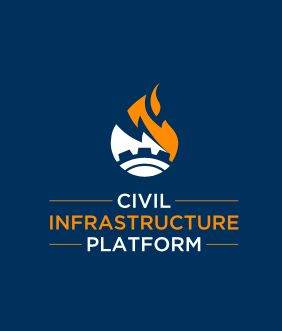Open Source Community Working to Create Linux Base Layer of Industrial Grade Software will Showcase Achievements at ELC Europe
PRAGUE, CZECH REPUBLIC and SAN FRANCISCO – October 23, 2017 – The Civil Infrastructure Platform (CIP), which aims to provide a base layer of industrial grade open source software components, tools and methods to enable long-term management of critical systems, today announced the release of the CIP Core. The CIP Core, a reference minimal file system that offers a customizable environment that developers can use to test the CIP kernel and core packages, will be on display at Embedded Linux Conference Europe with planned workshops, demos and Q&A sessions.
CIP aims to speed implementation of Linux-based civil infrastructure systems, build upon existing open source foundations and expertise, establish de facto standards by providing a base layer reference implementation, and contribute to and influence upstream projects regarding industrial needs.
Hosted by The Linux Foundation, CIP addresses the needs of long-term software for the power generation and distribution, water, oil and gas, transportation and building automation industries. CIP members such as Codethink, Hitachi, Plat’Home, Renesas, Siemens and Toshiba are working to create a reliable and secure Linux-based embedded software platform that can be sustained more than 10 years and up to 60 years.
“CIP is committed to creating, testing and maintaining an open source software foundation needed to deliver essential services for civil infrastructure and economic development on a global scale,” said Yoshitake Kobayashi, Chair of CIP’s Technical Steering Committee and the Senior Manager of Open Source Technology Department at Toshiba. “The CIP Core is a major milestone that will provide a platform for developers to easily build a reference file system and quickly test the CIP kernel with specific application and use cases. This customizable testing will eventually became a part of the product solution.”
CIP Core features include:
- Creating reference file system images to test and demonstrate use of the CIP kernel and core packages, a selected set of open source software components that require super long-term support.
- Achieving its first milestone after releasing reference file system images for the Beaglebone Black, the iWave RZ/G1M Qseven Development Kit, QEMU x86_64 and the DE0-Nano-SoC development kit.
- Consolidating the CIP kernel and core packages into a minimal reference file system that can be tested and used for further development.
- Leveraging released file system images that were generated with Deby, a reproducible and maintainable embedded Linux distribution currently based on poky and Debian LTS source code.
Board at Desk v1.0:
CIP also recently launched Board AT Desk (B@D) v1.0, a customized and easy to deploy instance of the kernelci and LAVA projects that should allow developers to test Linux kernels on boards connected to their own development machines using the tooling provided by one of the most successful Open Source testing projects, kernelci.org. B@D v1.0 is provided as a vagrant virtual machine (VM) image/recipe and as a VM image, known as a Vagrant box.
With this release, CIP is moving towards a “shared and trusted testing” target for not just those directly involved in maintaining the CIP kernel but any kernel developer that has physical access to a board. It reduces the deployment, configuration and maintenance costs. B@D introduces a “local” approach to kernelci.org which is a distributed service centrally managed. In addition, CIP intends to increase the number of developers and organizations willing to participate in kernelci.org by providing a simple mechanism to evaluate the technologies developed by that community (LAVA and kernelci) which CIP considers upstream. For more information about the B@D v1.0, read this blog post.
CIP at Embedded Linux Conference Europe:
Live demonstrations of the CIP kernel and LTS will be on display at the Embedded Linux Conference Europe taking place on October 23-25, 2017. The CIP booth (Booth M17) will be filled with innovative member solutions from Codethink, Plat’Home, Renesas, Siemens and Toshiba.
CIP members Agustin Benito Bethencourt, Principal Consultant at FOSS and Codethink, and Ben Hutchings, developer at Codethink and CIP lead maintainer, will also share insight, tips and experience about maintaining a Linux kernel over a long period of time on Tuesday, October 24 at 4:55 p.m. This session will describe the kernel maintenance challenges CIP is facing, the plans to overcome them and what additional measures will be taken in the near future to walk towards maintaining the CIP kernel for 30 years or more.
Additionally, Yoshitake Kobayashi and Urs Gleim, head of the Research Group of the Smart Embedded Systems at Siemens Corporate Technology and chair of the CIP governing board, will provide a CIP overview on Tuesday, October 24 from 11:45 a.m.– 12:25 p.m.. They will introduce attendees to the project’s strategy, use cases, technical roadmap, policies and milestones.
CIP is also hosting open workshops and a developer meeting before and during the show for Linux developers and maintainers. On Sunday, October 22, CIP members will lead three workshops for testing, collaboration and Q&A sessions in the Athens room at the Hilton Prague. The workshop schedule is below. For more information or to register for a session, visit the CIP wiki.
Workshops on Sunday, October 22:
2 p.m.: AGL Testing & B@D Collaboration Discussion
4 p.m.: B@D 101
5:30 p.m.: CIP Kernel Maintenance Q&A
Additionally, CIP members will host a Q&A session on Tuesday, October 24 at 1 p.m. The meeting is open to any and all developers interested in CIP, LTS, Linux maintenance and Debian. For more information, visit the CIP wiki.
About CIP
The Civil Infrastructure Platform (CIP) is an open source project hosted by The Linux Foundation. The project is focused on establishing an open source base layer of industrial grade software to enable the use and implementation of reusable software building blocks that meet the safety, reliability and other requirements of industrial and civil infrastructure. For additional information, visit https://www.cip-project.org/.
About The Linux Foundation
The Linux Foundation is the organization of choice for the world’s top developers and companies to build ecosystems that accelerate open technology development and commercial adoption. Together with the worldwide open source community, it is solving the hardest technology problems by creating the largest shared technology investment in history. Founded in 2000, The Linux Foundation today provides tools, training and events to scale any open source project, which together deliver an economic impact not achievable by any one company. More information can be found at www.linuxfoundation.org.
The Linux Foundation has registered trademarks and uses trademarks. For a list of trademarks of The Linux Foundation, please see its trademark usage page: https://www.linuxfoundation.org/trademark-usage/ Linux is a registered trademark of Linus Torvalds.
###




